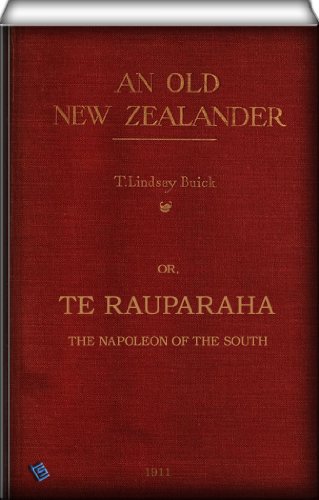Showing An old New Zealander : or, Te Rauparaha, the Napoleon of the south by T. Lindsay Buick
No recommendations yet View on Amazon (paid link)
An Old New Zealander - or, Te Rauparaha, the Napoleon of the South. by T. Lindsay Buick
I have been constrained to write the story of "An Old New Zealander" largely to gratify the frequently expressed desire for a more comprehensive sketch of Te Rauparaha's career on the part of many readers of my former books, in which fitful glimpses of the old chief were given. These references have apparently awakened some considerable interest in the life and times of the great Ngatitoan, and although this period of New Zealand's history is by no means barren of literature, I am hopeful that there is still room for a volume in which much heterogeneous matter has been grouped and consolidated. There may be some amongst the reading public who will question the need, or the wisdom, of recording the savage and sanguinary past of the Maori; but history is always history, and if this contribution serves no other useful purpose, it may at least help to emphasise the marvellous transformation which has been worked in the natives of New Zealand since Te Rauparaha's time—a transformation which can be accounted one of the world's greatest triumphs for missionary enterprise. It may be, too, that some critics will not subscribe to my estimate of the chief's character, because it has been the conventional view that he who refused to part with his own and his people's heritage was destitute of a redeeming feature. Owing to the misrepresentation of the early settlers and traders he has been greatly misunderstood by their successors; and they have further added to the injustice by sometimes seeking to measure one who was steeped in heathen darkness by the holy standard which was raised by the Founder of Christianity. As in the careers of most conquerors, there is much in the life of Te Rauparaha that will not bear condonation; but in every British community there is a wholesome admiration for resourcefulness, indomitable will, and splendid courage; and, if the succeeding pages serve to balance these high qualities of the chief against his failings, they may assist in setting up a more equitable standard whereby future generations will be able to judge him.
In compiling this work I have necessarily had to draw upon many of the existing publications on New Zealand, and I now desire gratefully to acknowledge my obligations to their authors. I have also to thank Mr. S. Percy Smith, F.R.G.S., for the kindly interest he has displayed in the progress of my work, and in no less degree must I pay my respectful acknowledgments to Mr. H. M. Stowell and to Mr. J. R. Russell for their judicious criticisms and suggestions, whereby I have been assisted in arriving at a correct historical perspective. To Mr. T. W. Downes, of Whanganui, who has enthusiastically co-operated with me in procuring some of the illustrations, and to Mr. J. W. Joynt, M.A., for his careful revision of the proofs, I am equally indebted, and now beg to tender to these gentlemen my sincere thanks for their assistance.
Humbly acknowledging the force of Carlyle's dictum that "Histories are as perfect as the historian is wise and is gifted with an eye and a soul," I now present the result of my last year's labour to the reader.